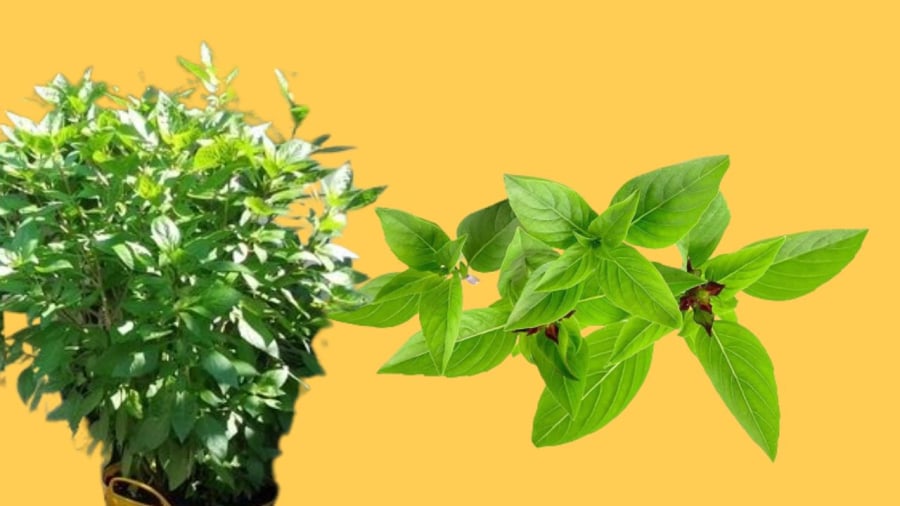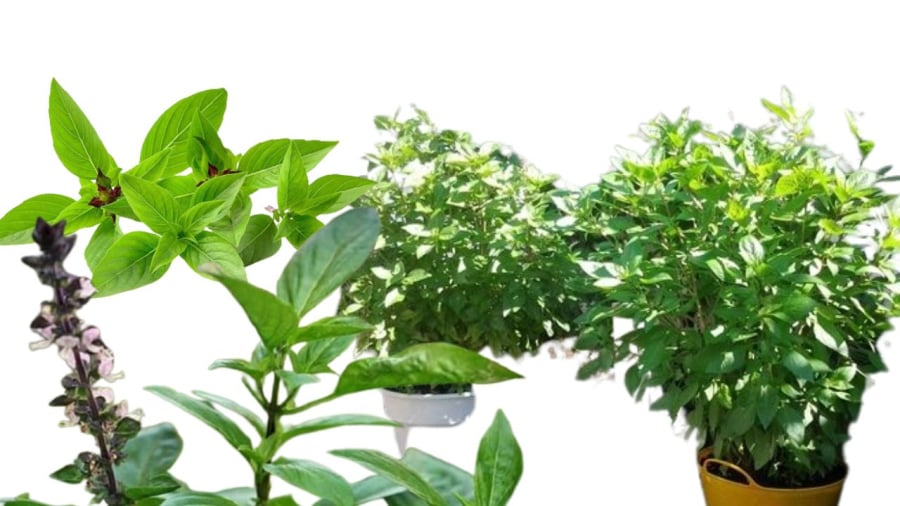Elevate Your Space with the Aromatic Basil: More Than Just a Culinary Herb
Meet basil, a versatile plant with a plethora of uses beyond the kitchen. With its leaves always pointing upwards, purple-brown stems, and pale purple flowers, basil exudes elegance and a unique fragrance.
While commonly sold as a culinary herb, basil is now making its way into homes as an ornamental plant with a twist. Known for its relaxing aroma, basil is easy to grow and thrives year-round, making it an ideal addition to your indoor or outdoor space. Just a gentle touch or a sprinkle of water releases its captivating scent.

Basil: A Fragrant Companion with Multiple Meanings
In recent years, basil has gained recognition as a feng shui plant. Its aroma is believed to purify spaces and attract wealth and prosperity. The upward-facing leaves symbolize growth and abundance, making it a lucky charm in the spiritual realm.
Unraveling the Meanings of Growing Basil
Dive into the world of basil, and you’ll discover its sacred status in Indian culture and its indispensable role in global cuisine. In Vietnam, basil is a familiar fixture in the kitchen, adding a distinct flavor to dishes.
From a feng shui perspective, basil represents wealth, development, and abundance. Its aroma is thought to ward off negative energies, filling your home with positive vibes.
The aromatic qualities of basil don’t stop there; it also acts as a natural air purifier, cleansing your space and promoting a sense of relaxation. Its scent is believed to bring good fortune and ward off bad energies. Thus, growing basil is thought to bring a host of feng shui benefits.
A Multifaceted Herb: Health, Tea, and More
Beyond its culinary and ornamental uses, basil is a powerhouse of health benefits. It’s often used to craft fragrant teas and keep pesky insects at bay. As a therapeutic herb, basil is employed to treat a range of ailments, from headaches and gum inflammation to halitosis, coughs, fatigue, and stress.
Which Feng Shui Birth Element is Compatible with Basil?
In the realm of feng shui, basil is believed to possess cleansing and protective properties. As such, it is suitable for individuals across different feng shui birth elements, except for those who may be allergic to its fragrance.

Basil: A Harbinger of Good Feng Shui
Feng Shui Directions for Basil Planting
To attract wealth and abundance, it is advisable to plant basil in the north, east, or northeast directions. Starting your basil journey is simple, thanks to its propagation through stem cuttings or seed germination. Whether you choose to grow it on your balcony, windowsill, or in your kitchen, ensure it receives adequate sunlight to dispel negative energies and invite positive ones into your home.
Basil is a low-maintenance plant that doesn’t require elaborate soil preparations. However, it’s essential to shield it from harsh sunlight to prevent leaf curling. During the initial propagation phase, focus on maintaining moisture and protecting the young plant from pests. While you can water it with rice water, avoid wetting the leaves. Basil thrives in partial shade, and it’s best to harvest its leaves in the morning or evening, avoiding the midday heat. When you pluck the top leaves, new branches will sprout, ensuring a continuous supply of fresh basil.
Disclaimer: This information is for reference only and should not be solely relied upon for decision-making.
Is It Fortunate to Plant a Yucca Plant in Front of Your House?
The Sago Palm is a popular choice for many homeowners when it comes to landscaping. Its lush, feathery foliage and sturdy trunk create a striking aesthetic that enhances any outdoor space. Beyond its visual appeal, the Sago Palm is revered for its symbolic significance in feng shui, bringing good fortune and prosperity to those who embrace its presence. With its ability to thrive in a variety of conditions, this resilient plant is an ideal addition to homes seeking a touch of natural beauty and a boost of positive energy.
Does Keeping Knives by the Bedside Affect Feng Shui?
The practice of keeping cutlery by the bedside is not a prudent habit. It is imperative to understand that this seemingly innocuous habit can have unforeseen consequences. While it may seem convenient to have easy access to these utensils, there are far safer and more practical alternatives to consider.



































